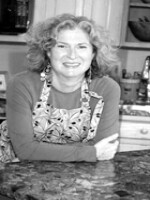It's delicious, it's nutritious and it's basically rotten. Fermentation is a hot culinary trend, and, asWeekend Editionfood commentator Bonny Wolf explains,the preservation process gives food a flavor unique to time and place.
People you know may intentionally be growing bacteria in their homes — on food, outside the refrigerator. And they are doing it to make food safe, and nutritious.
They are doing what cooks have always done: fermenting food.
For decades, we have fought against bacteria in our food. And now we're being told to make love — not war — on germs.
Before you wrinkle your nose, consider this: If you have ever eaten bread, cheese, chocolate or yogurt, or drunk beer, wine or coffee, you have had fermented food.
There are bad bacteria. But many are beneficial.
OK, non-scientists, stick with me. Fermentation is the process in which bacteria and yeasts feed on the sugars in food. That creates lactic acid, a preservative. It is what Bill Schindler, a fermenter and anthropology professor at Washington College, calls "controlled rotting." The results are the probiotic foods you hear about: miso, tempeh, the fermented tea called kombucha.
The nutrients are intact, the foods are easier to digest, and new flavors have been created.
Katy Chang, an award-winning kimchi maker, says fermentation is magic. You make nutrients and flavors that didn't exist before, using what's in the air around you.
This taste of time and place gives your food what some fermenters call "microbial terroir." Yeah, like in wine.
Chefs, artisan food producers and just plain folk have been touched by fermentation magic. New York superchef David Chang is working with a Harvard microbiologist to try new things at his Momofuku fermentation lab, like pistachio miso cashew tamari.
Sandor Katz is considered the guru of fermenting food. He calls himself a "fermentation revivalist," trying to bring back an ancient tradition.
In his introduction to Katz's book, The Art of Fermentation, food writer Michael Pollan says we've been living in an age of Purell. He calls fermentation "an eloquent protest against the homogenization of flavors and food now rolling like a great, undifferentiated lawn across the globe."
Katz says he wants to demystify fermentation so people won't be afraid. Then, maybe, we can all feel the magic.
Bonny Wolf is managing editor ofAmerican Food Roots.
Copyright 2021 NPR. To see more, visit https://www.npr.org. 9(MDEwMTk5OTQ0MDEzNDkxMDYyMDQ2MjdiMw004))






